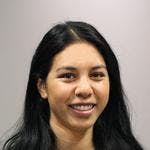How does progress on gender equality affect progress on other Sustainable Development Goals (SDGs)? How does women’s participation in the workforce reduce corruption? What’s the relationship between poverty and climate action? And what does this all have to do with five university students?
The answers to the first three questions, in order: A lot; it reduces it; inverse.
And the last question, what this has to do with five students? These were some of the big questions studied using big data by our five student winners of the #Visualize2030 data storytelling contest.
The challenge to students was to bring their knowledge, skills, and unique perspectives to help global leaders realize the SDGs. It’s no small ask, but Google Cloud, the Global Partnership for Sustainable Development Data, the United Nations Foundation, and the World Bank – creators of the Visualize 2030 contest – knew students would be up for the challenge.
“We wanted to harness creative, inquisitive student minds to help find data-driven solutions to some big issues,” said Rajesh Mirchandani, Chief Communications Officer for the UN Foundation, and a Visualize 2030 judge. “We were delighted so many young people took part – it shows they understand that achieving the SDGs needs everyone, everywhere, and they are ready to play their part.”
More than a thousand students took part in the contest. Our panel of expert judges agonized over their decisions because there were so many great entries, but in the end, these are the five lucky winners, and links to the data stories they produced:
Women in Government for Strong Institutions, Peace, & Justice
Anisa Holmes, City University of London
“I focused on the relationship between increased female participation with reduced corruption and stronger institutions.”
Anisa is a masters student studying interactive journalism at City University of London. She has previously worked as a data journalist in Berlin and has degrees in Economics and Graphic Design from Brown University and the Rhode Island School of Design.
The Building Blocks of Gender Equality
Anna Jacobson, University of California – Berkeley
“The hypothesis for my data story was that a country’s progress toward reaching the goal of gender equality would intersect with its progress toward reaching other SDGs, specifically on health, education, and employment.”
Anna Jacobson is an engineer by training, project manager by experience, and data scientist by aspiration. As a student in UC Berkeley’s Master of Information and Data Science program, Anna is rigorously pursuing the study of many facets of data analysis, while also serving as a student representative for both the MIDS Social Good initiative and the Women in MIDS initiative.
Poverty | Climate Action: An Inverse Relationship
Evan Snary, McMaster University
“In order to accomplish the SDGs of ending poverty and taking climate action, it is essential that we find a solution that ensures emission stability in rapidly growing nations, while encouraging their continued economic growth.”
Evan Snary is a 21-year-old commerce student currently attending McMaster University in Ontario, Canada. Previously, he participated in small business management and is interested in the broader world of data science. Google Data Studio has contributed to a successful internship where Evan presents vital data in a meaningful way.
Inequalities of Today and Tomorrow
Kelsey Wang, Stanford University
“In my data story, I explain to an imaginary character, Emilia, how necessary education is to develop solutions to both poverty and climate change.”
Kelsey is a math and computer science junior at Stanford University. On campus, she is co-president of Stanford Association for Computing Machinery and has also been involved with Code the Change, Stanford Splash, and Girls Teaching Girls to Code. Kelsey co-founded Teens Exploring Code, a teen-led organization that promotes accessibility to computer science education and diversity in tech.
Earth, Water, Air, and Rising Temperatures
Sarah Liou, McMaster University
“While I started off exploring the relationship between greenhouse gas emissions and livestock production, I was surprised to discover the negative impacts agriculture has on our freshwater supplies and land availability as well.”
Sarah lives in Toronto, Canada and attends McMaster University, where she is working toward a Bachelor of Commerce, majoring in marketing. Sarah was introduced to Google Data Studio through her work internship, where her main responsibilities are marketing, analytics, and sales. With Sarah’s love for animals and passion for the environment, she was excited to create a visual story that would drive awareness to these important causes.
“Through storytelling and design, these students were able to produce ideas that could help drive real-world impact. We hope they don’t stop there,” said Claire Melamed, CEO of the Global Partnership for Sustainable Development Data and a Visualize 2030 judge. “We hope more students and young people will bring their skills to delivering sustainable development and prosperity for all.”
As part of the contest, students were asked to submit a data-driven story that reveals how at least two SDGs influence each other, and what actions might be taken to reach those goals by 2030. The contest also aimed to empower students to take advantage of some of the new, accessible data visualization technologies that have democratized the space and made it more creative and exploratory than ever before.
The five winners of #Visualize2030 each take home $10,000 – and we are delighted we can give their work some exposure. We also hope we can build on the first year of the contest in future. Follow us here and on social media to keep up-to-date. And please take some time to explore the winning data stories that help find evidence-based pathways to achieving the SDGs.
Click here for more information on the #Visualize2030 contest.
Amber Kiwan is a Communications Officer for the Global Partnership for Sustainable Development Data.



 View All Blog Posts
View All Blog Posts


